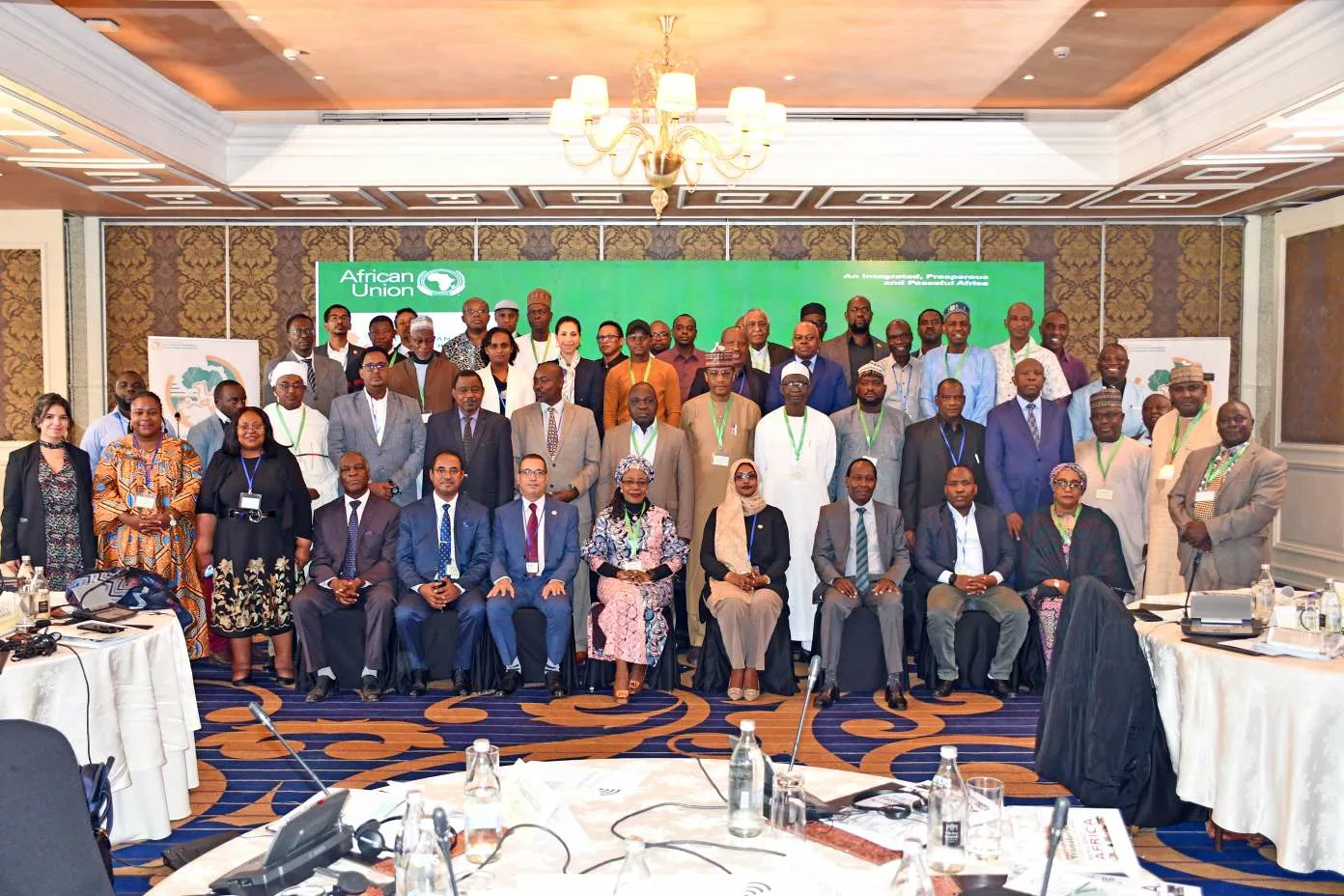|
Getting your Trinity Audio player ready...
|
A new era in livestock marketing has dawned through the African Pastoral Markets Development Platform (APMD), which represents a groundbreaking initiative hosted by the African Union Inter-African Bureau for Animal Resources (AU-IBAR).
Speaking during the APMD launch, Mohamed Omar, a renowned pastoralist leader, said the platform implementation will reflect the shared commitment to the transformations of the African pastoral sector and sustainable development of livestock markets across the continent.
“This platform embodies our aspiration to elevate the role of pastoralism in inclusive economic growth, sustainable development, and enhancement of livelihoods. Pastoral livestock plays a pivotal role in Africa’s social and economic dimensions providing food economy income and security for millions. However, the sector continues to face challenges including climate change, limited market access, and policy gaps.
“The platform aims to facilitate market-driven transformation in pastoralism and promote inclusive agricultural transformation across Africa. It will implement market-focused interventions to enhance pastoral integration into livestock markets. The APMD platform will initially translate priorities actually into two livestock countries, Kenya and Nigeria, and the six outreach countries,” Omar said.
In a speech read on her behalf, Ambassador Josefa Sacko, the African Union Commissioner for Agriculture, Rural Development, Blue Economy and Sustainable Environment, said the first analytics and implementers engagement workshop of the African Pastoral Market Development Platform was meant to reflect the shared commitment to the transformations of African pastoral sector and sustainable development of livestock markets across the continent.
“This platform embodies our aspiration of pastoralism in inclusive economic growth, sustainable development, and enhanced livelihood. APMD builds on three fundamental pillars. First, the seamless integration of the private sector into livestock marketing from evidence-based investment models to the development of public-private partnerships (PPP) in the livestock development sub-sector. Private enterprises are transforming traditional markets, marking a continual approach to harmonizing the private sector engagement with the pastoral systems that have existed for generations now,” she said.
The platform seeks to focus on policy harmonization across borders, harmonized quality standards, regulatory frameworks, and all-inclusive marketing policies. Further, it acknowledges that policy harmonization is not only about writing regulations but also engaging stakeholders from local chiefs to national and federal ministries and all actors across the livestock marketing chain.
At the heart of APMD’s policy framework lies a multi-tiered stakeholder engagement structure with an emphasis on engaging with the stakeholders at every level, community, national, and regional, to achieve streamlined cross-border producers, harmonized quality standards, gender-responsive market policies, and youth-inclusive financial frameworks.
The platform’s policy component ensures that traditional leaders inform governance structures, private sector-shaped trade regulations, women and youth-influenced market rules, research institutions guide everyday-based policies, and advocate for policy incentives and commercial production and land use management.
In the evolving landscape of pastoral markets, data isn’t just numbers, it’s the foundation of informed decision-making. APMD seeks to make its data ecosystem unique through its ability to transform complex market information into actionable insights for every stakeholder level. The platform’s data ecosystem operates on three critical levels of data collection.
“The platform believes that every data point tells a story from individual sales to ads movement, thereby building a comprehensive picture of the market reality, data integration, and analysis, which calls for the combination of traditional knowledge with modern analytics, decision support systems with customized decision-making frameworks. A trader can see insights different from that of a policymaker, but all of them growing from the same data pool,” she added.






